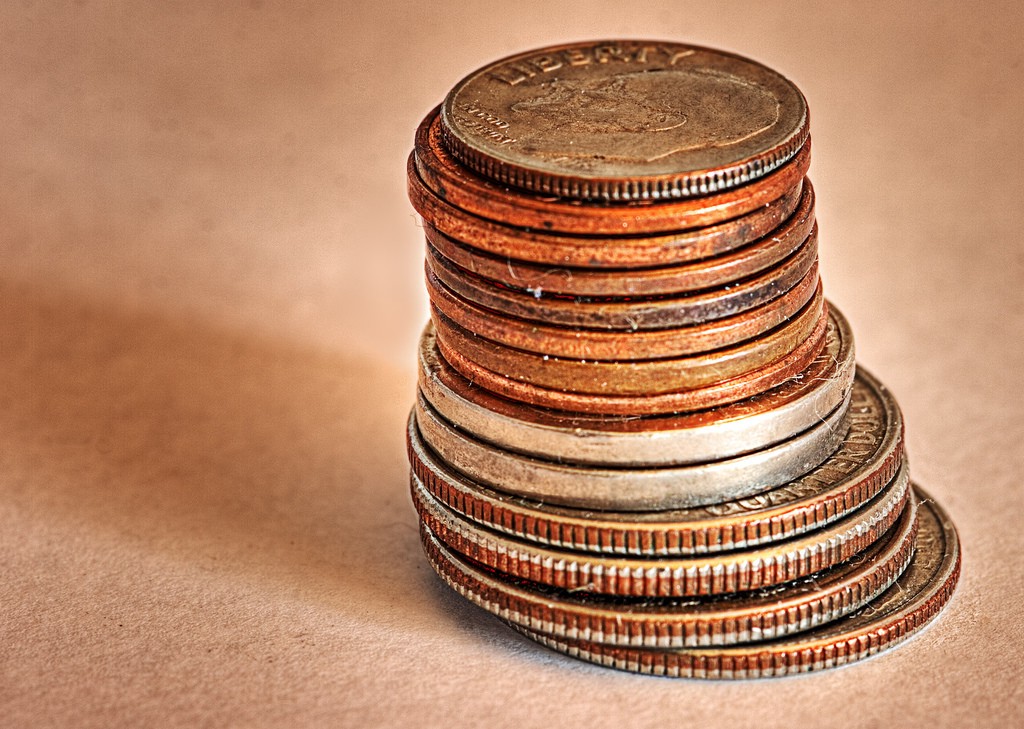All the Financial Advice Right Now Makes Me Anxious
Save money? Give money? Just keep doing what you’re doing?

I’ve made myself the goal of taking one “Trump action” every other day: calling a senator, writing a letter, signing up to phone bank for Foster Campbell in Louisiana because there’s this runoff election on December 10 which means there’s the possibility for the Democrats to flip a Senate seat.
Except… when I call, the person who takes my call says they’ll add my name to the long list of people who have called about that issue already, and I haven’t heard back from the Campbell campaign because I suspect that they also got an overwhelming amount of volunteer interest.
So I’m doing things, but I don’t feel like I’m making a difference yet. I feel more like I’m throwing pennies into an enormous fountain and making wishes.
Which brings me to financial advice. What should we do with our literal pennies right now? We’ve run a couple of stories on that subject this week, but let’s turn to what other financial advisors are saying:
A Question for Uncertain Times: What Do You Still Control?
Make a list. What can you control right now? The list won’t include big things like dealing with Russia and its president, Vladimir Putin. But you do have total control over how you treat your neighbor who didn’t vote the same as you or how you react to someone in the grocery store who looks different than you do. Anything that doesn’t appear on this list is out of your control, and by default, something that may cause you anxiety if you focus on it.
Ugh. Okay, Carl Richards. I get this boundary-centric thinking, like what is in my locus of control and what is not, and I’ve used it myself for a lot of things. But right now we’re in this state where we could be doing things that might help, but it’s hard to tell. Calling a representative might help and it might not. Donating money will definitely benefit an individual organization, but our work could still be overturned by, say, a Supreme Court appointment.
We can control our individual actions but we can’t control the large-scale results we hope to get from these actions. And when action and result become disconnected, we get anxiety.
Also, Richards has no idea how Trump’s presidency might affect our finances.
Should You Change Your Financial Plans Because Trump Won?
Finally, predicting the future is a fool’s game. I would urge you to think about your long-term goals and short-term needs and plan your finances accordingly. And I would have said the same thing last week, before the presidential election. We have no idea how the economy will perform under President Trump any more than we would know how financial things would have shaken out under a President Hillary Clinton. There are plenty of people who suspect a Trump presidency will be good for the overall economy, even if not for our civic life.
Helaine Olen also doesn’t know how a Trump presidency will affect our finances. Her advice to keep working towards our financial goals makes sense, and that’s the kind of advice I’d give if anyone asked, but her statement that Trump might be good for the economy makes me even more anxious.
Which, in my heart of hearts, of course I’m hoping that the next four years will be economically great. And socially great. And inclusive. And that we’ll continue working to decrease the impact of global climate change. And so on.
But let’s say that, out of that list, we only get economically great. Markets and white supremacy and global temperatures all going up at the same time. That might be the worst outcome.
How Should Women Financially Prepare for the Trump Years?
Tara, your best move right now is to batten down the hatches. Pad your emergency fund, consider raising your contributions to your 401K — all the stuff you’re normally supposed to do, only with more urgency. You need walking-out-the-door money, because protective barriers between you and discriminatory employment practices are likely to shrink. I’m glad that your current office seems fair and equitable, and I sure hope it stays that way. In the meantime, you might want to bone up on your company’s internal employee policy, just in case — it might be more useful to you than our government.
Charlotte Cowles, NYMag’s Money Mom, reminds us that we all need to get our fuck-off funds in order. Obviously there is a privilege element here, because not everyone earns enough to save walking-away money, but the idea is that if we can save more, we should. That cash could help us during a period of unemployment; it could fill in the gap that health insurance might not cover; it could help us transition out of a job where we might be experiencing sexual harassment. It might help us cross state lines to get an abortion.
This is also the kind of advice I’d give, but I have to admit that I feel a tug between “save as much as you can” and “give as much as you can.” If Foster Campbell’s people don’t email me back about the phone banking thing, for example, I could donate money to Campbell’s campaign. Or I could donate money to every organization on Jezebel’s list:
A List of Pro-Women, Pro-Immigrant, Pro-Earth, Anti-Bigotry Organizations That Need Your Support
Finding that balance will be hard, and it’s already making me anxious because, you know, what if I don’t give enough? or what if I don’t save enough? Each penny can only go towards one place, and I have to hold out my hand, drop the coins, and make a wish.
Support The Billfold
The Billfold continues to exist thanks to support from our readers. Help us continue to do our work by making a monthly pledge on Patreon or a one-time-only contribution through PayPal.
Comments